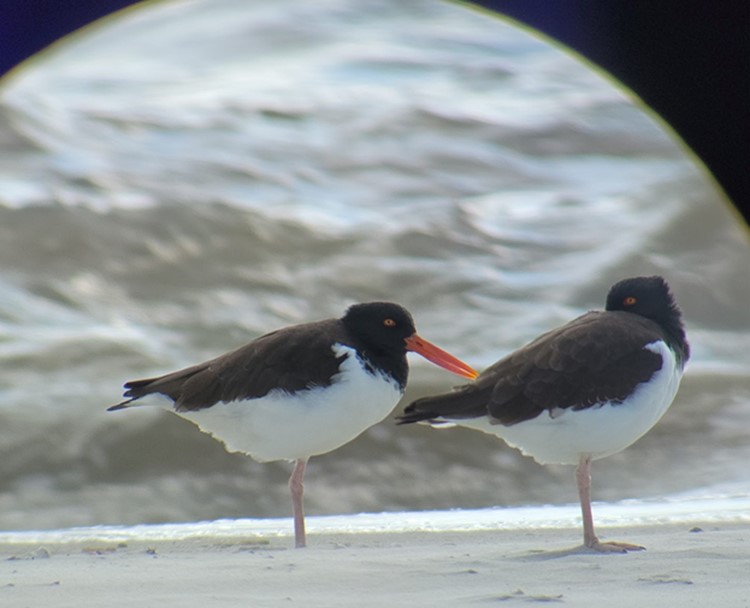By Ben Carswell, JIA Director of Conservation and Sustainability
The partnership between the Jekyll Island Authority, Georgia Audubon, Georgia Sea Grant, and Jekyll Island Foundation to support a State Sea Grant Fellowship based on Jekyll Island in 2020 and 2021 has ended following a productive and enriching year for Sergio Sabat-Bonilla. While Sergio has moved on to Ph.D. studies at Virginia Tech, thanks to his efforts, we now have a more complete understanding than ever before of how, when, and where shorebirds are using Jekyll Island’s beaches.
During his fellowship, Sergio logged countless hours surveying all of Jekyll’s beaches by bike and on foot, counting and identifying over 18-thousand individual birds representing 16 different species. Sergio found that the best time and place to see the greatest abundance of shorebirds while on island, is in the morning on the south end as the tide is rising but not yet high.
Another aspect of Sergio’s fellowship was to analyze four priority species – Wilson’s plover, piping plover, red knot, and American oystercatcher. Areas of research focused on where these species were most likely to be seen, at what stage of the tide, and at what time of day.
Piping plovers, a species that winters on Jekyll Island and is federally protected under the Endangered Species Act, were notably wider ranging along the beaches than had previously been assumed. Pipers, as they are affectionately called, and their cousins, the Wilson’s plover, utilize both Jekyll’s remote and less traveled beaches on the far south end of the island as well as the busier beaches fronting the island’s bustling Beach Village and Great Dunes Beach Park.
While it’s encouraging that these species are still finding space and food to support their needs even on Jekyll’s busiest beaches, it’s also cause for caution and awareness. As Jekyll Island has experienced increased visitation due to changing patterns of tourism during the pandemic, it is all the more essential for Jekyll Island conservation staff to continue to protect the wildlife habitat value of both Jekyll’s most pristine beaches as well as its most visited ones.
How can you participate?
- Be mindful and respectful of birds when visiting or walking pets on the beach.
- Educate – read articles on Wildlife Research, become an Environmental Steward, or sign up to take a seasonal Ranger Walk or Gatorology adventure.
- Help with bird conservation efforts by donating HERE.
